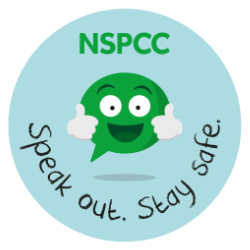Being a parent can be challenging and it is important that you take care of your own mental health. Changes to our mental health can sometimes affect children and their well-being.
The importance of Self-care
Self-Care for Parents and Carers Anna Freud Centre (link opens in new window)
Mental and physical health are both important aspects which contribute to a person’s wellbeing. Our mental health can change over time in relation to our personal circumstances and other factors. The current global pandemic has impacted greatly on the mental health of many people who may have faced bereavement, enforced separation from loved ones and loneliness. We go through different emotions throughout the day and week. Some days we are more able to manage the stresses of life and others we need more support. If you are struggling you could reach out to friends and family, but this is not always possible as sometimes friends and family may contribute to the problems. It is important to remember that there is no one size fits all solution to any mental health difficulty.
For many years there was a stigma associated with mental health, but we now live in more enlightened times and understand that anyone can experience mental health difficulties at some point in their life. The good news is that there is help available and often a problem spoken or shared is a problem solved.
Mental health support for parents and carers – www.place2be.org.uk parents & carers (link opens in new window)
Parents Mental Health Support - www.youngminds.org.uk parents (link opens in new window)
As a parent, you have a great influence on your own child’s wellbeing and there are now many tools that can help you to nurture your child and contribute positively to their mental health.
| Mindfulness Ideas and Suggestions |
Website Link |
|---|---|
|
Brain Breaks It is important for us all to take breaks when we are working hard. |
|
|
Music Listening to relaxing music can help us to calm and regulate our emotions. Music can be used to calm after an eventful day or as a brain break. |
CBeebies - Relaxing sounds to help children sleep (link opens in new window) |
|
Talking It is important to talk with family and friends about the positive and negative experiences we have had. This supports us to process what has happened and to hear a different point of view. |
Talk about your feelings | Mental Health Foundation (link opens in new window) BBC Bitesize - How can you cope with feeling angry? (link opens in new window) |
|
Physical exercise Being active can help your mental health and support your immune system. This could be going for a walk, jogging or yoga. If you are not able to be physically active for whatever reason there are other activities you can do like gardening, sitting outside or near a window and mental exercise like a word search. |
|
|
Breathing Taking time out to breathe and be in the moment is a great way to relax. |
www.nhs.uk Breathing exercises for stress (link opens in new window) |
|
Journal Keep a journal. Writing down your feelings can help you reflect, understand and let go of emotions. |
|
|
Eating It's important to be healthy and eat well and if you need help with getting essentials you can contact your local food bank or our Family Support Worker. |
Find a Local Food Bank - The Trussell Trust (link opens in new window) |
|
Sleeping Sleeping is very important to your own and your child’s mental health. |
www.nhs.uk How to get to sleep (link opens in new window) Helping your child to sleep | Disability charity Scope UK (link opens in new window) |













